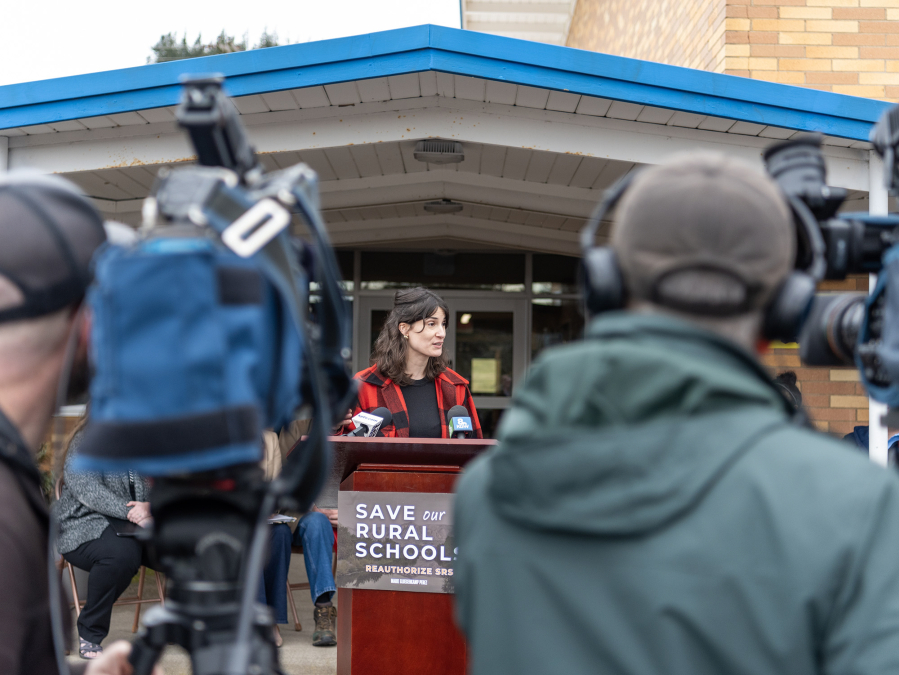U.S. Rep. Marie Gluesenkamp Perez, D-Skamania, said last week that the federal government’s failure to reauthorize a 25-year-old timber revenue program supporting rural counties would “devastate” Skamania County and its schools.
During a press conference held Feb. 20 at Mount Pleasant School in west Skamania County, the second-term congresswoman urged lawmakers to renew the U.S. Forest Service’s Secure Rural Schools and Self-Determination Act of 2000. The U.S. Senate approved the program renewal in December, but it stalled in the House.
Perez said the program needed to be renewed by Jan. 31 to avoid impacting rural counties that rely on the federal revenues.
“This is craziness,” Perez said Thursday. “It’s penny wise and pound foolish. (I) will not go quietly along with this inattention from federal agencies and the federal government. I refuse to let federal inaction undermine the opportunities our kids have. I will keep fighting for this in Washington, D.C.”
The Secure Rural Schools program helps fund schools, roads and other public services, such as law enforcement, in 700 rural counties, including Skamania. These counties are rich in timber lands but lack the type of industry that generates tax revenues.




